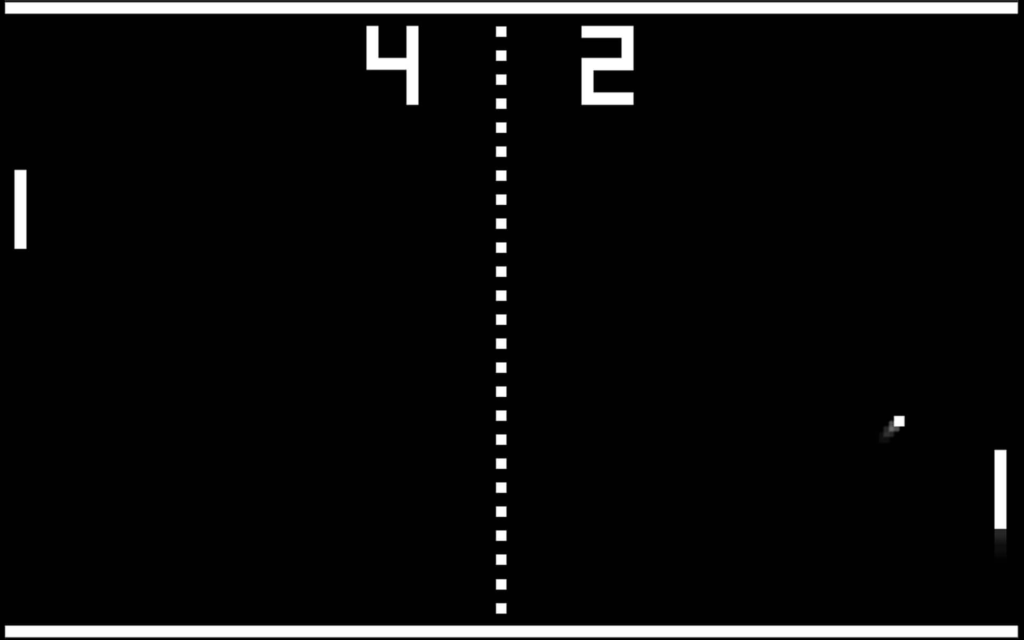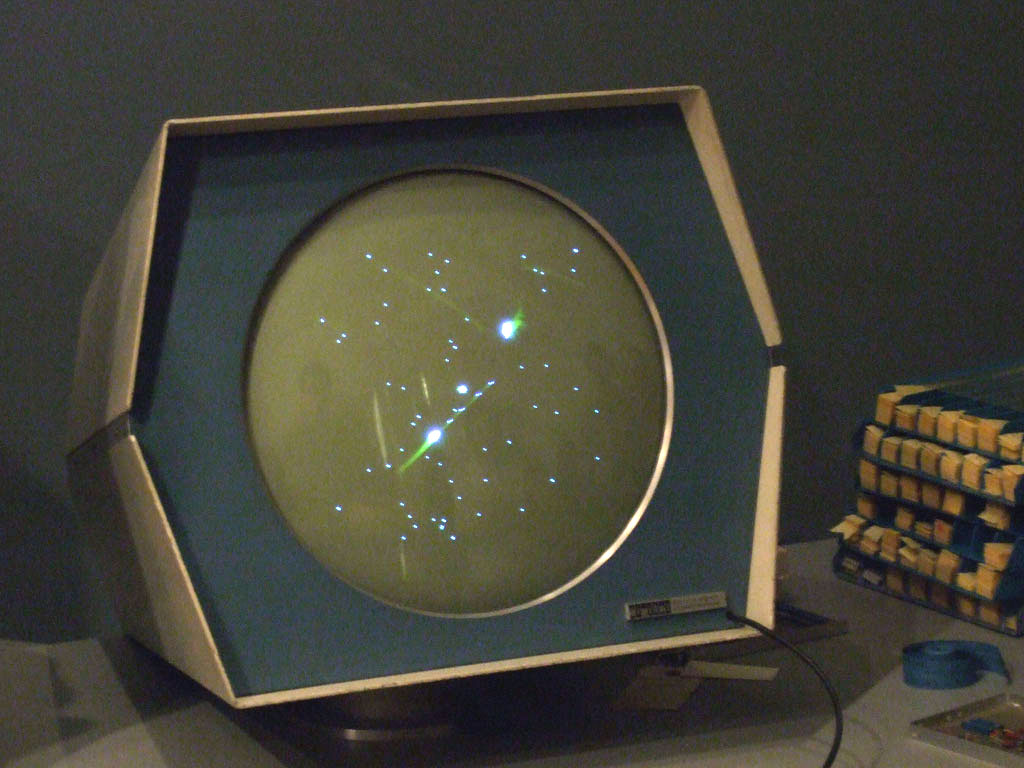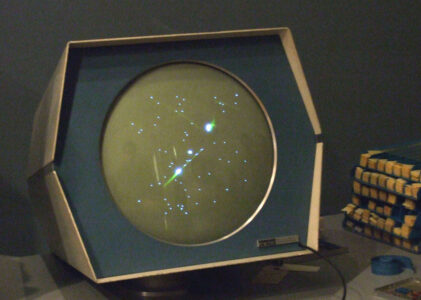Unearthing the Games That Shaped Gaming History
The 1970s marked the emergence of a new form of entertainment: computer games. These early games laid the foundation for an industry that would eventually become a global phenomenon. In this article, we’ll take a nostalgic journey back to the 1970s and explore the top 20 most influential computer games that left an indelible mark on gaming history. From the pioneering days of Pong to the birth of the role-playing game (RPG) genre, these games set the stage for what would become a multibillion-dollar industry.
1. Pong (1972)
Link: Pong

Pong, often referred to as the “granddaddy of video games,” was created by Atari co-founder Nolan Bushnell. This simple yet addictive table tennis simulation introduced the concept of video gaming to the masses. Pong allowed players to control paddles and bounce a ball back and forth, pioneering the two-player competitive gaming experience.
2. Space Invaders (1978)
Link: Space Invaders
Space Invaders, developed by Taito, was a groundbreaking arcade game that captivated players with its relentless alien invasion. Players controlled a spaceship at the bottom of the screen, shooting at descending rows of alien invaders. It introduced the concept of high scores and competitive gaming, sparking a global sensation.
3. Breakout (1976)
Link: Breakout

Breakout, a collaboration between Atari’s Steve Wozniak and Steve Jobs, presented players with a novel challenge. They controlled a paddle that bounced a ball to destroy rows of bricks at the top of the screen. Breakout showcased the potential of simple yet addictive gameplay, laying the foundation for countless block-breaking games to come.
4. Colossal Cave Adventure (1976)
Link: Colossal Cave Adventure
Colossal Cave Adventure, often referred to as “Adventure,” was one of the earliest text-based adventure games. Created by Will Crowther, it took players on a journey through a mysterious cave system filled with treasures and dangers. This game set the stage for the emergence of interactive storytelling in gaming, paving the way for future text-based adventures.
5. Asteroids (1979)
Link: Asteroids
Asteroids, developed by Atari, transported players into the vastness of space. Players piloted a small spaceship and had to shoot down oncoming asteroids while evading UFOs. Its vector graphics were groundbreaking at the time, and the game’s simple yet challenging gameplay kept players engaged for hours.
6. Zork (1977)
Link: Zork
Zork, created by Tim Anderson, Marc Blank, Bruce Daniels, and Dave Lebling, was one of the earliest and most influential text-based adventure games. Set in a mystical underground world, players solved puzzles, collected treasures, and navigated a rich narrative. Zork’s immersive storytelling and intricate puzzles paved the way for future adventure games.
7. Gun Fight (1975)
Link: Gun Fight
Gun Fight, released by Midway in 1975, was an early arcade game that allowed two players to engage in a Wild West shootout. It was one of the first games to feature microprocessor technology, enabling more complex gameplay. Gun Fight’s competitive nature set the stage for the multiplayer gaming experiences that would follow.
8. Spacewar! (1972)
Link: Spacewar!
Spacewar!, considered one of the first video games ever created, originated in 1962 but gained prominence in the 1970s on early computer systems. It allowed two players to engage in a space combat duel, with each player controlling a spaceship armed with torpedoes. Spacewar! laid the foundation for space combat games and multiplayer gaming.
9. Adventureland (1978)
Link: Adventureland

Adventureland, developed by Scott Adams, was among the first text-based adventure games designed for personal computers. Players embarked on a quest to rescue a kidnapped princess in a fantastical world filled with puzzles and challenges. Adventureland’s success inspired a series of similar titles and contributed to the growing popularity of home gaming.
10. Lunar Lander (1973)
Link: Lunar Lander
Lunar Lander, designed by Atari in 1973, offered players a realistic simulation of landing a spacecraft on the moon. It required careful control of thrust and fuel to make a safe landing, emphasizing both precision and strategy. Lunar Lander’s realistic physics and educational value made it a standout title of the 1970s.
11. Tank (1974)
Link: Tank
Tank, an early arcade game by Kee Games, allowed players to engage in tank warfare. It was a precursor to the popular tank combat games that would follow, introducing the concept of vehicular combat to gaming enthusiasts. Tank’s simple yet engaging gameplay made it a memorable title of the era.
12. Football (1978)
Link: Football
Atari Football, released in 1978, was one of the earliest sports video games to capture the excitement of American football. Players could control their team’s Xs and Os in a football simulation that laid the foundation for future sports game developments. Atari Football’s influence on sports gaming cannot be overstated.
13. DND (1974)
Link: DND
DND, short for “Dungeons & Dragons,” was an early computer adaptation of the popular tabletop role-playing game. It allowed players to explore a dungeon filled with monsters, treasures, and traps. DND laid the foundation for the RPG genre in video games, offering players the chance to embark on epic digital adventures.
14. PDP-1 Spacewar! (1970)
Link: PDP-1 Spacewar!
The PDP-1 version of Spacewar!, played on the DEC PDP-1 computer, expanded the reach of the game and contributed to its status as a pioneer in the gaming world. It allowed more people to experience the thrill of space combat on a wider scale, highlighting the game’s influence and accessibility.
15. Night Driver (1976)
Link: Night Driver

Night Driver, developed by Atari in 1976, was one of the first games to use a first-person perspective. It allowed players to experience the thrill of high-speed night driving, dodging obstacles on a winding road. Night Driver showcased the potential for immersive racing experiences in gaming.
16. Oregon Trail (1971)
Link: Oregon Trail
Oregon Trail, initially created as an educational game for schoolchildren, became a cultural phenomenon. It combined history with adventure, teaching players about the challenges of 19th-century pioneers and the harsh realities of the Oregon Trail journey. Generations of players learned about the trials and tribulations of westward expansion through this iconic title.
17. Bomber (1977)
Link: Bomber
Bomber, a classic arcade game, tasked players with dropping bombs on enemy targets from a bomber aircraft. It was an early example of the “bombing run” genre of games, where players needed precision and timing to hit their targets. Bomber demonstrated the potential for aerial combat in gaming.
18. Hunt the Wumpus (1972)
Link: Hunt the Wumpus
Hunt the Wumpus was an early text-based adventure game that challenged players to hunt down a mythical beast known as the Wumpus. The game’s goal was to navigate a dark cave filled with hazards while avoiding the Wumpus and other dangers. Its simple yet engaging gameplay captivated players in the 1970s and highlighted the potential for puzzle-solving in gaming.
19. The Wizard and the Princess (1978)
Link: The Wizard and the Princess
The Wizard and the Princess, developed by On-Line Systems (later known as Sierra On-Line), was a pioneering graphic adventure game. It featured detailed visuals and a captivating narrative set in a magical kingdom. Players embarked on a quest to rescue a princess, solving puzzles and exploring a beautifully illustrated world. The Wizard and the Princess marked a significant step forward in the use of graphics in computer games, offering players a visually immersive experience.
20. Star Trek (1971)
Link: Star Trek
The original Star Trek text-based game, created in 1971, allowed players to take on the role of the USS Enterprise commander. It was an early example of a game based on a popular franchise and provided fans with an immersive experience in the Star Trek universe.
Influential Computer Games of the 70s
The 1970s laid the foundation for the modern gaming industry we know today. These influential computer games of the 70s not only provided countless hours of entertainment but also pushed the boundaries of technology and innovation. They continue to be celebrated for their enduring impact on the world of gaming. As we reflect on these iconic titles, we can appreciate how far the industry has come and look forward to the exciting future of video games.

